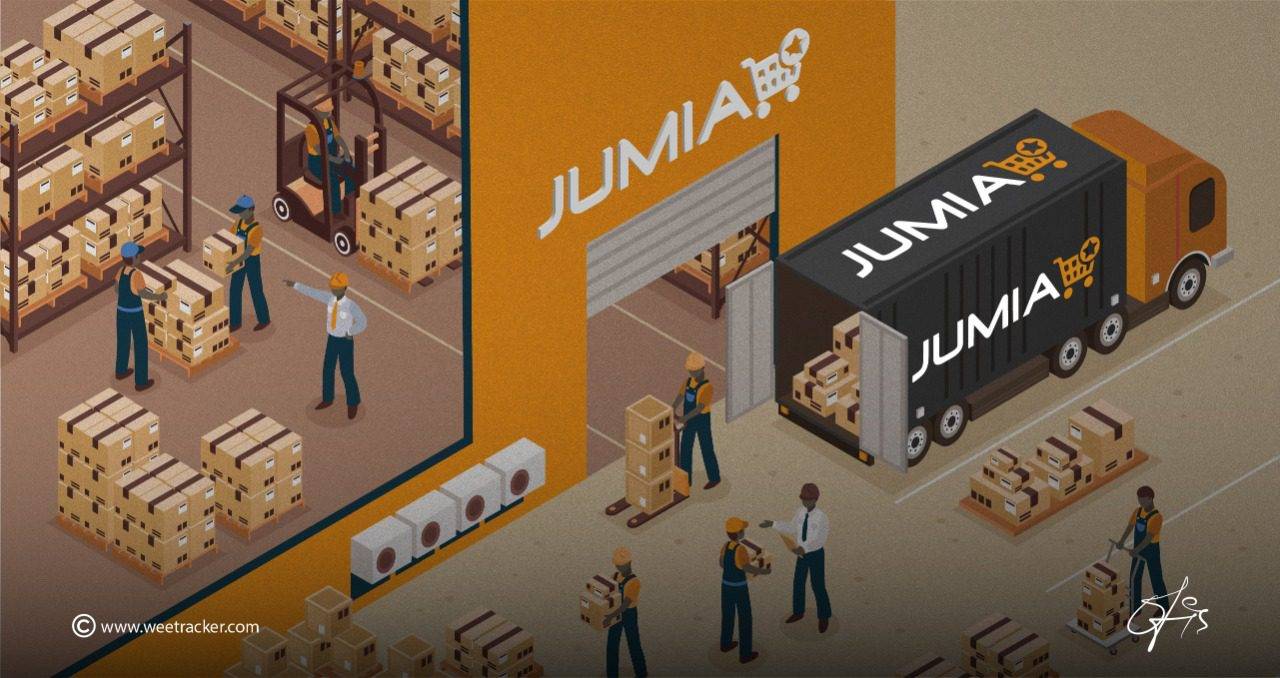Jumia Cut 900+ Jobs & Made Big Changes In New Lean-And-Mean Era

Africa’s leading e-tailer, Jumia, has taken major steps to climb out of a rut and put itself on track to deliver on long-coming plans of reducing losses and accelerating progress towards profitability, even if it means selling to fewer customers for a while and culling its workforce.
Jumia, which emphasises that cost reduction is a key priority of its strategy, undertook significant headcount reductions in the fourth quarter of 2022. This resulted in over 900 position terminations, the company says, corresponding to a 20 percent headcount reduction.
“We have streamlined our organizational structure, creating leaner, more effective teams, fully committed to the execution of our strategy,” Jumia explained in its latest results publication.
As part of the streamlining efforts, Jumia says it has also significantly reduced its presence in Dubai where certain management functions were located, reducing headcount by over 60 percent. It is understood that most of the remaining staff are being relocated to African offices, closer to consumers, sellers and operations.
“We expect these headcount reductions to allow us to save over 30 percent in monthly staff costs starting from March 2023, as compared to the October 2022 staff cost baseline,” the company estimates while also noting that an expense of USD 3.7 M was incurred in the restructuring process. Notwithstanding, Jumia insists it is working across the full cost structure to drive efficiencies.
These changes, coupled with efforts at prioritising fundamentals-led growth and gutting underperforming business units amongst other factors, did affect Jumia’s sales.
In the just-released fourth quarter and Full Year 2022 results, active customers amounted to 3.2 million for the three months ended December 31, down 15 percent year-over-year. The company says this was partly a reflection of a challenging macro environment across countries that is putting pressure on consumer spend while affecting sellers’ ability to secure supply.
Another factor cited as being responsible for the subdued showing is the deliberate action on Jumia’s side to reduce promotional/marketing intensity behind categories with more challenging unit economics, including a number of digital services on the JumiaPay app. “We remain disciplined around customer acquisition with a focus on profitability,” the e-tailer emphasised.
The combination of the above factors, macro environment and deliberate category rationalisation, also drove a decline in orders by 12 percent year-over-year, to 9.9 million in the fourth quarter of 2022, the company notes. Gross Merchandise Value (GMV) also slowed to USD 283.1 M, down 14 percent year-over-year and flat on a constant currency basis.
However, Francis Dufay (previously appointed Acting CEO and now appointed CEO of Jumia by the Supervisory Board) maintains it’s no cause for panic as one of Jumia’s immediate priorities is to significantly improve resource allocation, focusing on core areas with attractive returns on investments and clear ecosystem benefits.
“In the fourth quarter of 2022, we started implementing our strategy to accelerate our path to profitability and further strengthen our fundamentals. While the fourth quarter results only reflect a fraction of the actions we are taking, we are seeing early signs of success and remain focused on execution,” Dufay commented.
In its earlier Q3 2022 results released in the middle of November last year shortly after the exit of long-standing co-CEOs Sacha Poignonnec and Jeremy Hodara, Jumia announced its intention to cease a number of activities that do not yield attractive returns.
These business exits, the company now says, have largely been completed: Jumia Prime has been discontinued; the logistics-as-a-service offering is off in all but three countries; first-party grocery has been scaled back in four markets; food delivery discontinued in Egypt, Ghana, Senegal, and Tunisia.
Some of these changes appear to already be yielding fruit in some ways as operating loss in Q4 2022 was USD 49.8 M, down 41 percent year-over-year while gross profit accelerated to USD 41 M in the fourth quarter of 2022, up 22 percent year-over-year. Also, with its marketplace revenue hitting a record USD 41.2 M and fulfilment and other expenses continuing to fall, Jumia appears to be taking the slow and steady route; an increased focus on sustainability after years of unbridled growth-chasing spending.
Jumia, which has its African headquarters in Lagos, Nigeria, while serving 11 countries on the continent, has been the dominant e-tailer in these parts for more than a decade but continues to struggle to make the numbers work, failing to turn profitable and accumulating around USD 2 B in losses. Its share price has tumbled nearly 70 percent since its historic 2019 IPO as shareholders and analysts continue to express unease over the viability of its Amazon-style business model in challenging African markets.
The ongoing reset that is apparent at Jumia, thus, seems in order though it remains to be whether it would be enough to turn things around.